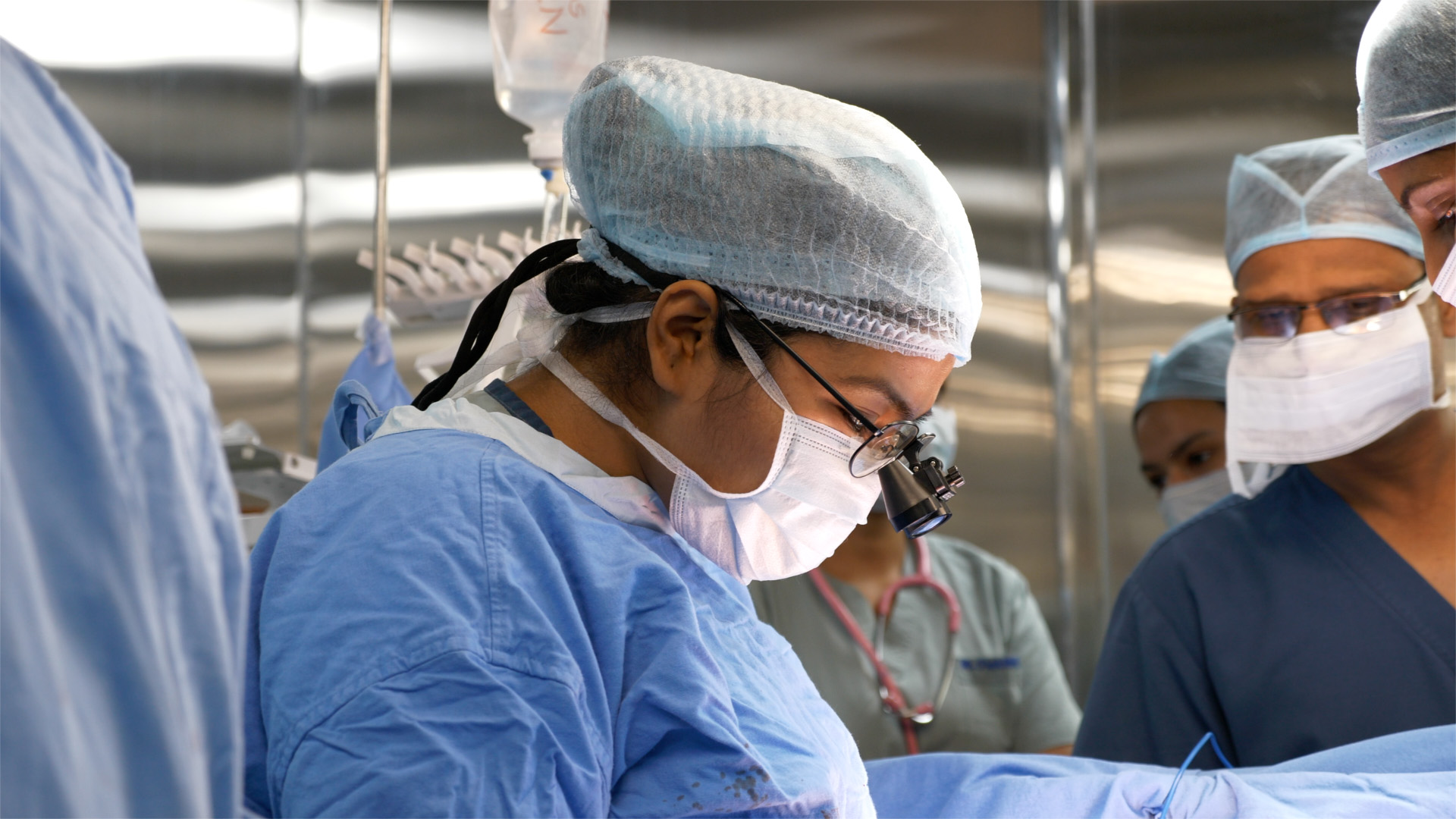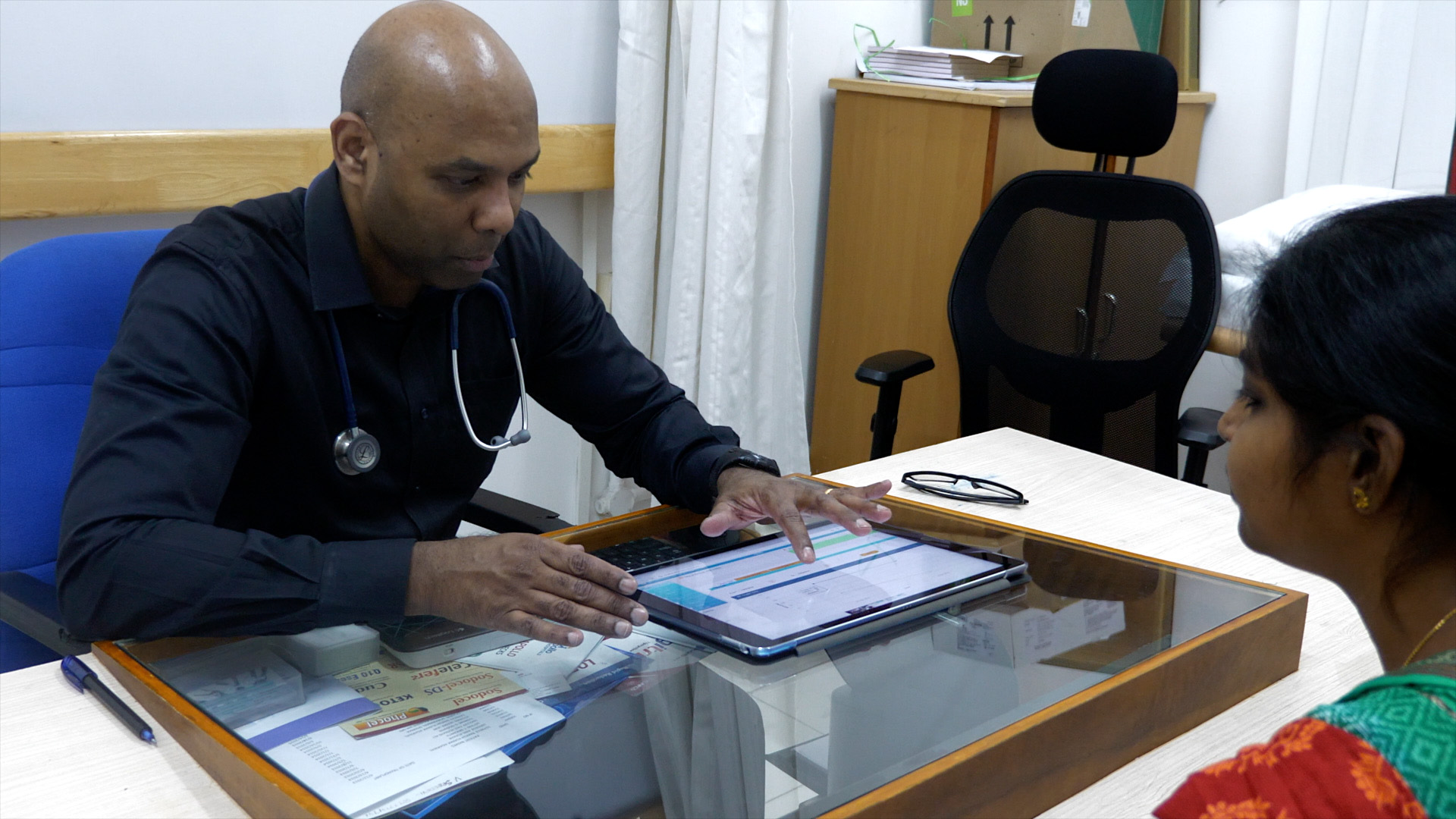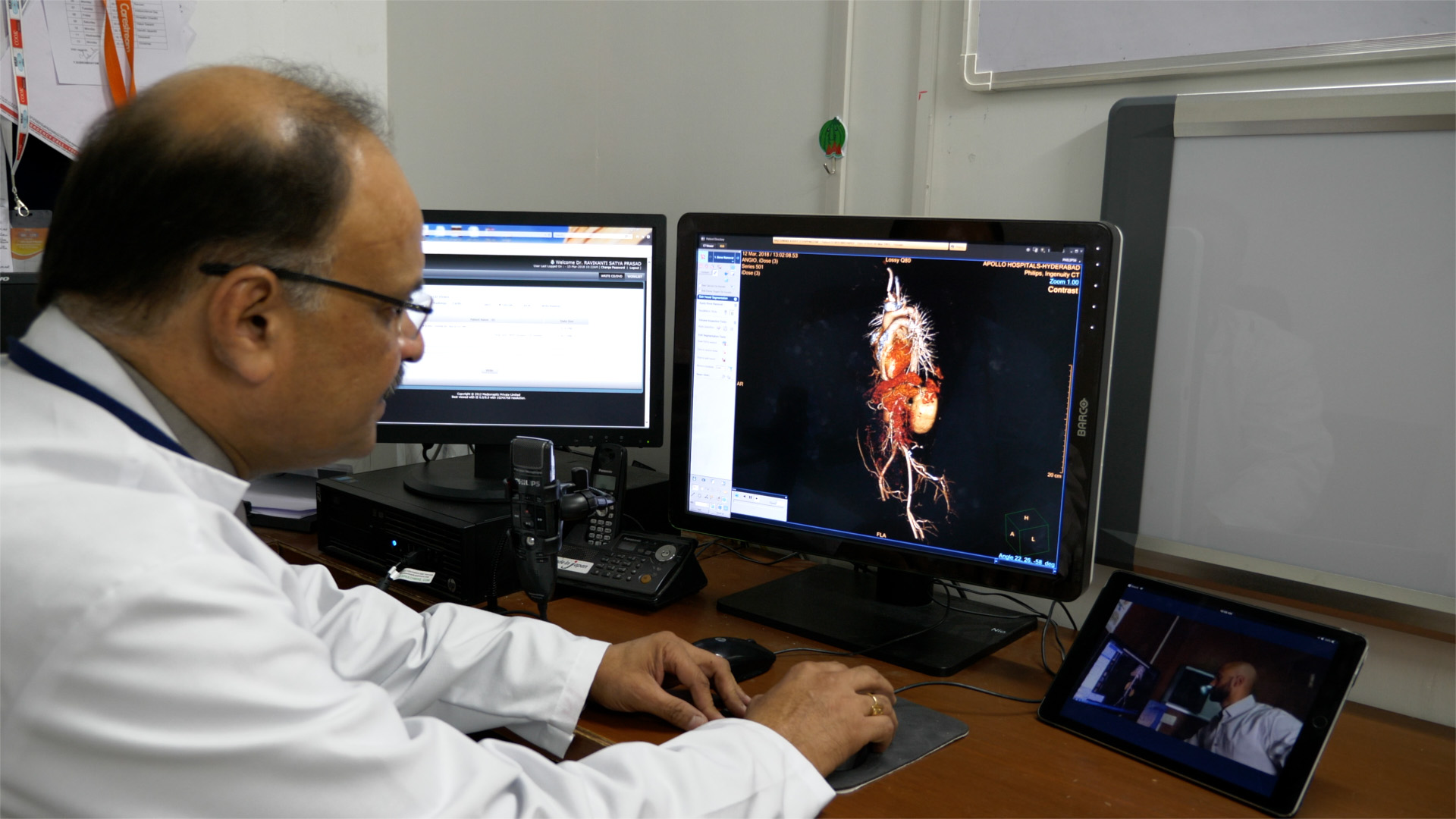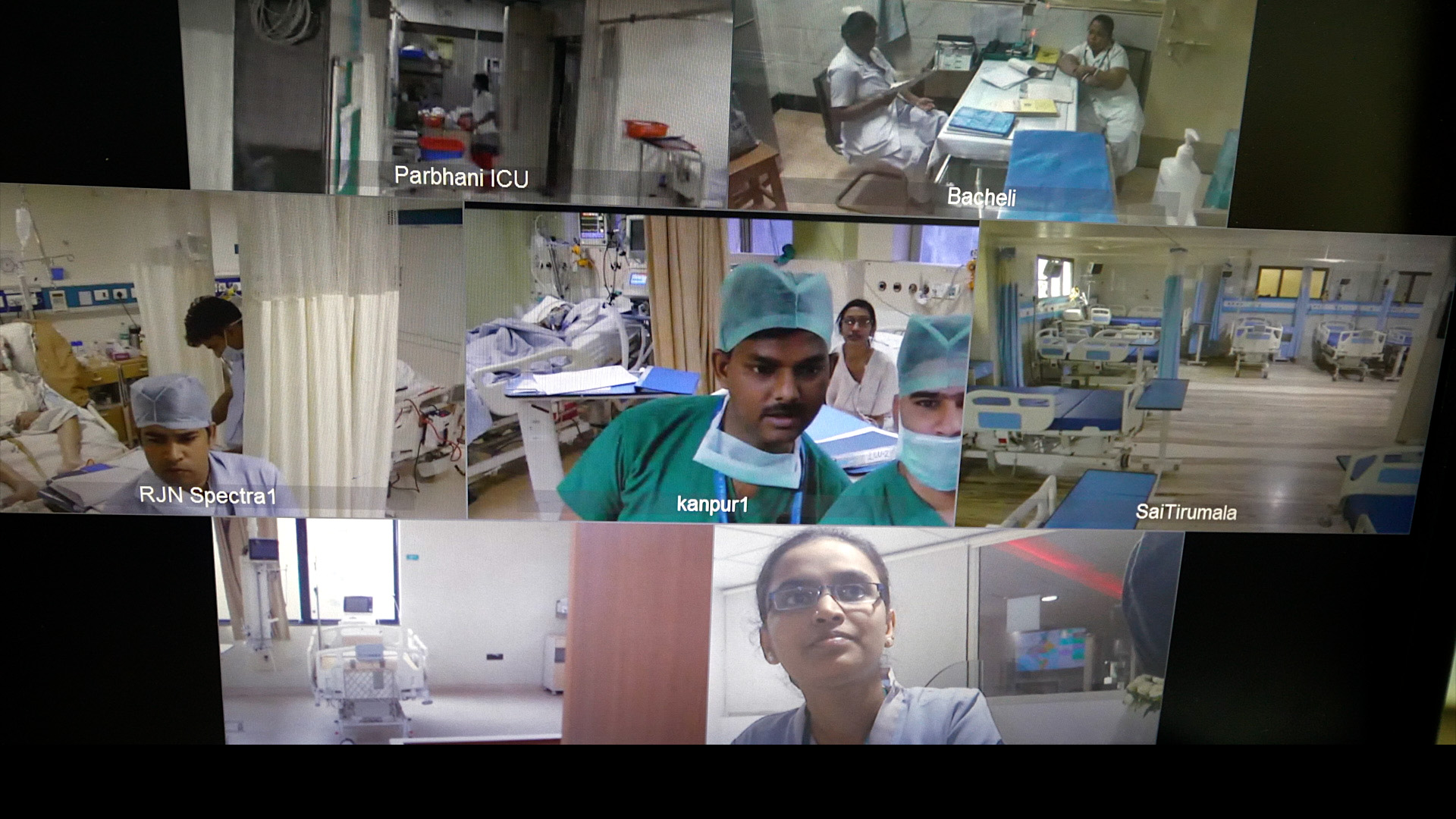
Bringing advanced healthcare to 300 million Indians, thanks to technology
To provide high quality healthcare to an ageing and expanding population of more than 1.3 billion and to bring medical care to remote areas, India’s healthcare industry needs to transform. Cloud, big data analytics and Artificial Intelligence (AI) help to accelerate the change to combat challenges. At Apollo Hospitals, one of India’s largest private healthcare companies, digital transformation in its various wards is enabling the expansion of quality care to more than 300 million Indians.
Some statistics say it all, so when you hear that India carries 20% of the global disease burden but healthcare expenditure per person is one of the lowest in the world, you know that India’s healthcare system is facing a crossroads.
Ever since Apollo Hospitals’ founder Dr Prathap C. Reddy lost a patient to heart disease in 1983 because of lack of medical resources, there has been a constant thread through the hospital’s strategic leadership vision – invest in modern technologies to improve the health of the nation.
Apollo Hospitals is already making great progress in hospital management with the ongoing digitization of patients’ healthcare history through the Azure cloud-based Prism system, and its one-stop-shop customer relationship management system, Ask Apollo, for booking appointments and online consultations with doctors. However, it’s in the big data, remote medicine, machine learning and AI areas of prediction, prevention and treatment where the holy grail of dramatically improving the population’s health lies.

Sangita Reddy, Joint Managing Director, Apollo Hospitals, describes the foundations that are enabling this ensuing digital revolution as the 3 ‘Bs’ – Biology, Bytes, and Bandwidth.
“Biology in terms of knowing the human genome and how diseases develop and spread, Bytes in terms of the massive amounts of data that can be stored and analyzed on the cloud, and Bandwidth in terms of increasing global connectivity to extend healthcare to even the remotest areas. Digital technology gives us speed, efficiency, access and knowledge across the medical ecosystem,” she shares.
One of the most fertile opportunities is in the cardio vascular department. Nearly three million heart attacks happen in India every year, and 30 million Indians suffer from coronary diseases.
Previously relying on western patient data and models of heart health, Apollo Hospitals, through a partnership with Microsoft’s AI Network for Healthcare, now has the capability of applying machine learning and AI to cardio-vascular health records to develop an Indian-specific heart risk score.
READ: How Asia Pacific is transforming digitally
The beauty of these solutions is that all the depersonalized personal health data that Apollo Hospitals is crunching comes from the Indian population. This means the model is two times more accurate than models with ‘borrowed’ data from other countries with different lifestyles, socio-economic, genetic and environmental factors.

Now, when a patient goes for a cardio health check the doctor can do two things previously left to guesswork and intuition. Firstly, they can build up a more accurate cardio-vascular health profile of the patient based on machine learning of all their previous patient data. AI can then in turn predict future coronary ailments the patient might experience in the next 10 to 20 years based on these multiple factors.
Secondly, the doctor can make a patient health plan that addresses these possibilities whether it be prescribing medicine or recommending specific lifestyle changes. Doctors can now work towards universal public health instead of firefighting unexpected symptoms and unforeseen health problems.
“This analysis should give us deeper clinical insights. So why does an individual with an X genetic biological presentation have disease X but not Y? Why does someone with the same lifestyle not have the same problem? Computing capacity is enabling us to take this data and generate clinical insights,” Reddy explains.
Infection control – or put simply – controlling the spread of diseases and infections within the hospital itself, is also benefiting from preventing unnecessary outbreaks and loss of lives by using Power BI data analytics. Infection control managers monitor the implementation of patient dosages and quickly make required changes when the analytics point towards potential risk areas in the hospital. The average length of patient hospital stay has now reduced by 22 percent making way for more patients to be treated, and more time for doctors to focus on other patients.

In pre-planning of surgeries, there are substantial changes as processes shift to digital. Here thanks to the Cloud, high resolution 3D imagery can be shared and analyzed in real-time with international and local experts to better plan complex operations like organ transplants.
As Apollo Hospitals’ digital strategies to increase telemedicine coverage in remote areas drive an exponential increase in take up allowing for over 100,000 video consults at more than 65,000 rural access points in 25 medical specialties, you can appreciate how the Founder’s vision is being upheld to levels previously unimagined 30 years ago.

Accordingly, Apollo Hospitals is well placed to meet its vision of impacting over a billion lives and ensuring the current and new generation of Indians enjoy a new era of healthcare.
As Sangita Reddy eloquently puts it, “The geography that is separating us and separating many people unable to access healthcare is becoming history. We’re shifting from an era of ‘the doctor will see you now’ to an era of ‘the patient will see you now’.”
Read more about how Asia Pacific is transforming digitally:
- Unlocking the economic impact of digital transformation in Asia Pacific
- The US$1.16 trillion reason to take digital transformation & AI seriously in 2018
- Asia Pacific’s amazing Digital Transformation race is on with a US$1.16 trillion economic boost at stake
- Digital transformation to contribute more than US$1 trillion to Asia Pacific GDP by 2021; AI is primary catalyst for further growth













